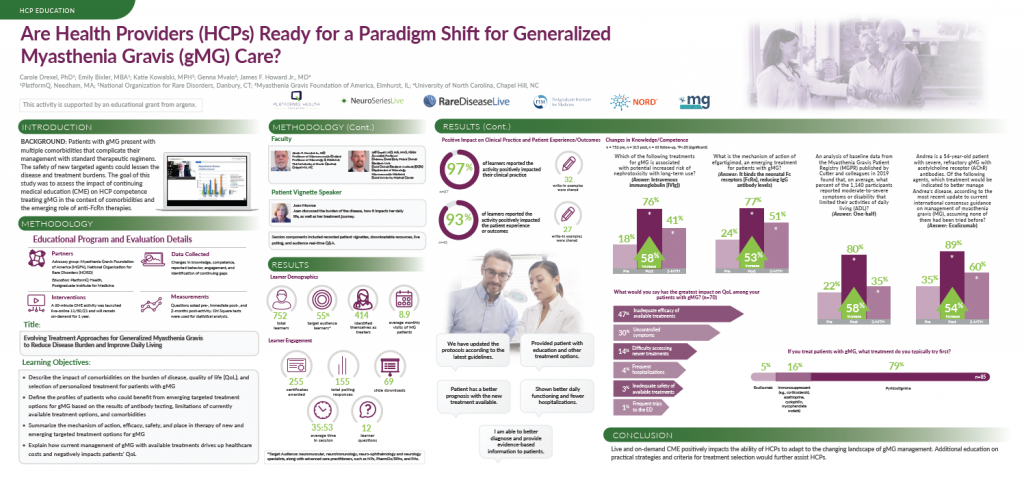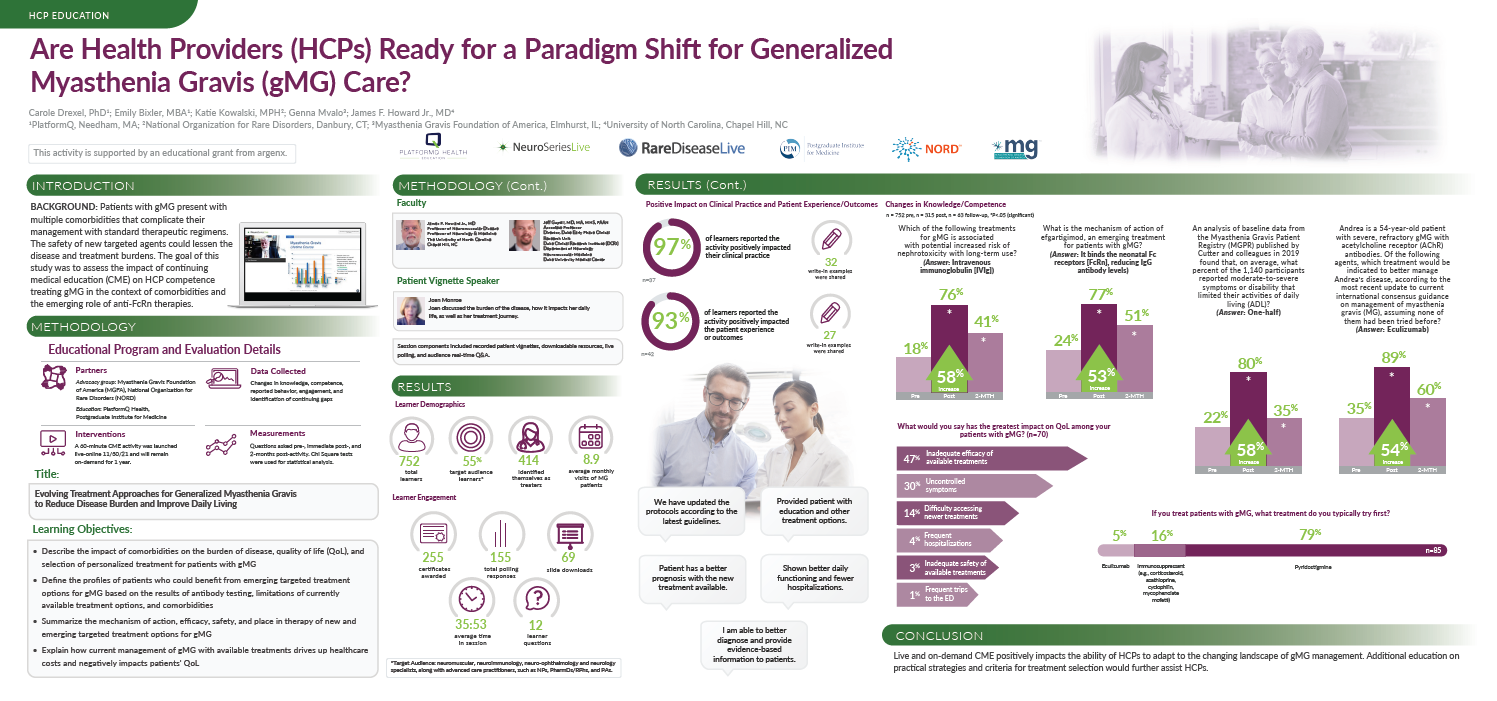Using standard therapeutic regimens for patients with myasthenia gravis (mGM) is often complicated by multiple comorbidities. New targeted agents may lessen treatment burdens. To address these challenges, PlatformQ Health, the National Organization for Rare Disorders, and the Myasthenia Gravis Foundation of America produced online continuing medical education for health care providers entitled “Evolving Treatment Approaches for Generalized Myasthenia Gravis to Reduce Disease Burden and Improve Daily Living.”
Learning objectives included:
- Describing the impact of comorbidities on the burden of disease, quality of life, and selection of personalized treatment for patients with gMg
- Defining the profiles of patients who could benefit from emerging targeted treatment options for gM based on the results of antibody tests and limitations of currently available treatments
- Summarizing the mechanism of action, efficacy, and safety of new and emerging targeted therapies
The educational outcomes from this initiative were accepted as a poster at the MGFA Scientific Session at the 2022 American Association of Neuromuscular Electrodiagnostic Medicine Annual Meeting in Nashville, TN to assess the impact of the education on HCPs’ competence in treating mGM in the context of comorbidities and the emerging role of anti-FcRn therapies. The results were impressive:
Click here to download the full poster.
Of the 752 learners who participated in the session, the average time in session was more than 35 minutes. 97% of learners reported the activity positively impacted their clinical practice while 93% reported the activity positively impacted the patient experience or outcomes.
Write-in comments from physicians were also promising, with numerous learners sharing that they have updated protocols according to the latest guidelines, improved the ability to diagnose and provide evidence-based information to patients, and shown better daily functioning and fewer hospitalizations.
These outcomes demonstrated that live and on-demand CME programs positively impact the ability of HCPs to adapt to the changing landscape of gMG management. Additional education with practical strategies will further assist HCPs with treatment selection.




